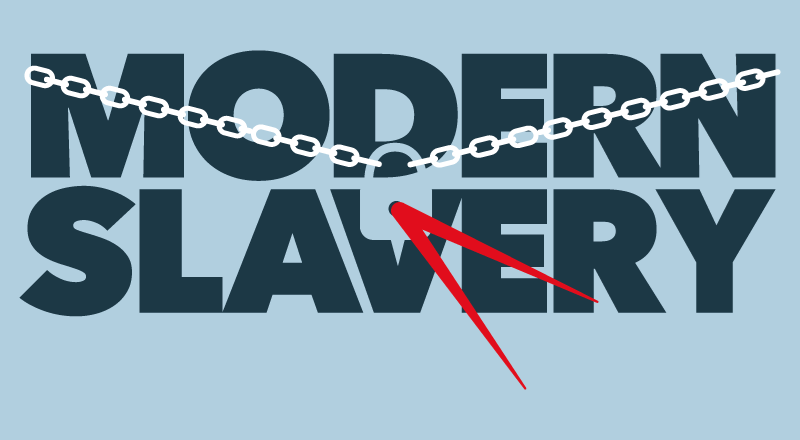Planning
Rising inflation should be included as an agenda item at internal and external planning meetings as each audited entity will be experiencing particular challenges or opportunities. This risk assessment should evolve with time.
The auditor will also need to take into account different timeframes for inflation assumptions – impairment reviews and pension scheme liabilities, for example, may involve medium to long-term inflationary assumptions, and other figures may be affected by shorter-term impacts.
As part of risk assessment under ISA (UK) 315, auditors will need to understand the controls management have in place, and use these to determine whether a controls- or substantive-based audit approach will be taken. For example, management’s internal controls over financial reporting may reasonably be expected to anticipate changes in inflation. Auditors should consider the impact on the entity’s business model, for example in relation to interest rates and foreign exchange rates.
Fraud
All three aspects of the ‘fraud triangle’ – incentive, opportunity and rationalisation – may be exacerbated by inflationary periods, therefore additional fraud risk factors may be identified under ISA (UK) 240. There may be a greater pressure to commit financial reporting fraud to meet targets or bonus thresholds.
Management and employees could be tempted to commit fraud for personal gain, and hence find it easier to rationalise fraud, due to the impact of inflation and the ‘cost-of-living crisis’.
There may also be greater opportunity to commit fraud if there is a high staff turnover, putting pressure on internal controls, which can then be exploited.
Employee considerations
Cost of living increases may lead to higher levels of staff turnover as employees leave in order to seek a better rewards package, or a less costly commute. Maintaining current levels of purchasing power puts pressure on remuneration, so employees ‘follow the money’. Redundancies may also be high as firms respond to increased cost pressures.
Internal controls may be strained due to greater rates of attrition, leading to a lack of consistency in maintaining a robust internal control system. Immaterial expenses may become material, or much larger. The inputs and outputs of analytical reviews will need to be considered carefully, building inflation into expectations, and prior year testing approaches may need to be reconsidered.
Other cost factors
Inflation is likely to increase the cost base throughout a business in areas such as fuel, gas, and distribution costs. Energy prices for companies are not limited by the consumer price cap, so are likely to be volatile and subject to higher increases than the general rate of inflation.
Rising costs could reduce profit margins, leading to cost-saving measures. Variable interest rates implicit in leases could lead to soaring rent payments, which will also affect profitability.
The supply chain of a business may also be put under pressure and key suppliers or customers may go out of business. The cost of finding alternatives, developing new contracts, and reliance on key relationships should be considered.
Impairment
Impairment reviews involve judgements and estimates, including those related to future cash flows. The most up-to-date information should be taken into account, especially that relating to inflation.
Impairment of financial assets, for example, trade debtors, contract assets or lease receivables, requires consideration of macroeconomic variables. These could include GDP growth, housing price inflation, and levels of unemployment. The effective interest rate and the discount rate used may also need to be re-evaluated. Sensitivities may need to be calculated and, due to increased uncertainty, downside scenarios may appear more severe.
Non-financial asset impairment, for example, goodwill or other intangibles, may include a Weighted average cost of capital (WACC) calculation which feeds into the discount rate, which could be impacted by inflation.
The cash flow projection used to calculate the fair value of a cash-generating unit (CGU) or asset may also be impacted by inflation rates.
Revenue
Businesses may be reviewing pricing structures to pass on increased costs to customers. Where long-term contract accounting applies under IFRS 15, a significant change in cost base may alter revenue recognition and lead to more onerous contracts.
Customers may struggle to settle payments which would increase debtor days and the risk of bad debts. Consumer buying behaviour may affect the business as disposable income reduces.
Defined benefit pension scheme obligations
Defined benefit (DB) pension scheme obligations are estimated by actuaries using multiple assumptions. The auditor assesses these assumptions for reasonableness and potential estimation bias under ISA (UK) 540, and should consult with actuarial specialists where necessary.
Inflation assumptions used in the valuation of a DB pension scheme include retail price and consumer price indices (RPI/CPI). A much larger liability may be calculated in an inflationary period and may result in a net liability position in both the DB scheme and the reporting entity’s balance sheet. This could have consequences for loan covenants.
Higher inflation will also impact AA Corporate yield curves, which calculate the discount factor for pension liabilities. With higher inflation you would expect higher yields. The auditor should consider whether management’s actuary and, if applicable, the auditor’s actuarial specialist have considered the effect.
Going concern
Any of the above may affect going concern. The way in which inflation interacts with an entity’s budgeting will vary; for some it could mean overlaying an existing budget with a percentage increase in cost base, for others there could be minimal impact. There may also be other specific supplies that are rising in cost at a rate different to general inflation. The macroeconomic environment is continually evolving, and care should be taken by management to ensure that the most up-to-date information and predictions are embedded into budgets and forecasts, and accordingly by the auditor in assessing going concern under ISA (UK) 570.
Parent companies may be facing similar pressure and be required to provide greater support across struggling group entities. It is important to ensure that any group support or guarantees can be delivered.
Variable interest rates could lead to increased debt repayments, which could put a strain on the entity’s cash flow. As margins reduce extra focus should be placed on covenants if it appears these may be breached.
Any changes to short/medium-term forecasts may impact the recoverability of deferred tax assets.
Businesses may enter into more complex or material hedging arrangements to mitigate risks to cash flow, and assessing this may require the use of audit specialists. Greater inflation and interest rate volatility may increase the ineffectiveness in hedging relationships. This may increase the likelihood of hedges not meeting the relevant effectiveness tests, which could generate income statement volatility.
Disclosures
The impact of inflation on disclosures should be considered. Balanced, proportionate and reasonable disclosure of any matters identified is required. Certain interest rate and equity sensitivities, or discount rates, may require disclosure, which may need to be reevaluated for appropriateness. Auditors also need to ensure consistency between the ‘front half’ and ‘back half’ of the annual report.
Representations
Additional written representations from management may help support other audit evidence obtained. However, the representations do not of themselves provide sufficient appropriate audit evidence about the matters they address.
Further resources
- Podcast: The pain – and potential gains – of rising inflation
- Insights: UK inflation reaches new 40-year high
- Insights: Inflation adds fuel to the deficit as cost of borrowing soars
- Insights: Inflation: 75 years of ups and downs
- Inflation Hub: Economic indicators: inflation
- The Audit & Assurance Faculty offers access to exclusive faculty resources including Audit & Beyond, technical releases, forthcoming events, on-demand recordings of faculty webinars, helpsheets and other support tools.
We’d really like to hear your thoughts on this topic. Please email amy-joy.butler@icaew.com to share your feedback and opinions.
Recent articles
Future of audit
Following the UK government's feedback statement on audit and corporate governance reform, we explore the various factors shaping the profession in 2022.




